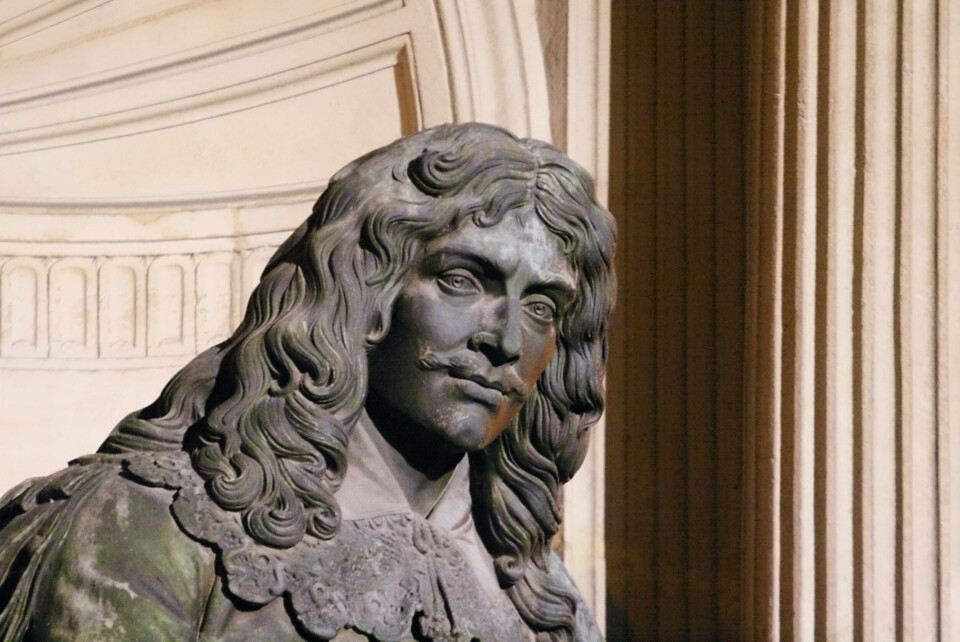-
Britons are the largest foreign community of second-home owners in Nouvelle Aquitaine
See which other departments in the region are popular with British nationals
-
Travellers risk extra costs under new Eurotunnel ticket rule
Some fare options are less flexible and less forgiving of lateness
-
May will be difficult month for train travel in France, warns minister
Two major train unions are threatening to strike and are ‘not willing to negotiate’, he says
Why Molière will not be placed in the Panthéon on his 400th birthday
The French government has refused to inter the renowned playwright in Paris’ most famous mausoleum because he was born too early. We explain

Today marks the 400th anniversary of the birthday of Jean-Baptiste Poquelin, far better known by his pen name Molière.
But despite the landmark, the French government is refusing to inter him in the Panthéon, as he lived before the Enlightenment in France.
Molière was a French playwright, actor and poet, and is widely regarded as one of the greatest French writers in history. His influence is so great that the French language itself is often referred to as the “language of Molière”.
However, while the country celebrates the famed writer, the anniversary has retriggered a recent debate about whether he should be interred in the Panthéon, the Paris mausoleum that acts as a resting place for many of France's great national figures.
Several notable names in France have demanded Molière’s body be moved to the Panthéon, including actor Francis Huster, current Paris mayor Anne Hidalgo, and the regional president of Île-de-France, Valérie Pécresse. The latter two are both presidential candidates at this year’s upcoming election.
Mr Huster, who had previously suggested the idea, brought it up again in July last year during the Festival de Carcassonne, an arts festival.
“Molière is France: If we take him out of a French library, it will collapse,” he said.
“I’m asking the President of the Republic for his entry into the Panthéon. I hope it will happen on January 15, 2022, for the 400th anniversary of his birth.”
The government has refused. Bruno Roger-Petit, a spokesman for President Emmanuel Macron, justified the decision in a recent interview with Libération.
“The Panthéon is a secular temple, the child of the Republican fatherland, itself born of the Enlightenment,” he said.
“It is for this reason that all figures honoured there are from after the Enlightenment and the Revolution.”
Molière was born in 1622 and died in 1673.
The Enlightenment is typically said to date from the death of Louis XIV in France in 1715. Its end date is less clear, with some dating it at the outbreak of the French Revolution in 1789, and others with the death of Immanuel Kant in 1804.
Molière may not be getting interred at the Panthéon, but celebrations of his birth are still taking place in France.
A screening of his play Tartuffe will be shown tonight (January 15) in 200 cinemas around France.
Related stories:
Who was Jean Monnet and why is the EU celebrating him at the Panthéon?
US-born French icon Josephine Baker to enter France’s Pantheon
























